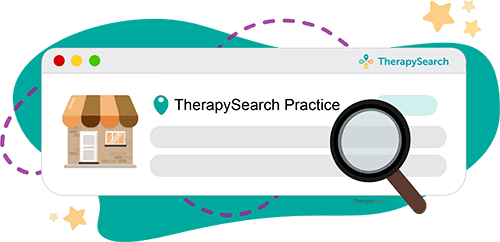Should You List Your Fees on Your Practice's Website?
By Allison Puryear, LCSW, CEDS on December 18, 2019

Let’s start off by clearly stating that there isn’t a right or wrong to this. I’m going to talk through some of the thought processes behind deciding whether or not to list your fees on your website, and you can decide which is the best fit for you and your clients.
Not Posting Your Fee
Those who discourage you from listing your fees on your website want you to have the chance to connect with the client and show both your value and the opportunity available to the client if s/he works with you without the preconceived notion of how much your services will cost them. On the surface, the vast majority of us would rather pay less for the same service rather than more, right? But if you have an opportunity to connect with the client on the phone, they get a hint of the experience of working with you without really having to know the true costs just yet.
You’re also likely to weed out the bargain shoppers. If your fees aren’t listed, then they’re unlikely to go through the rigamarole of a phone call with you.
You may, however, get some calls where clients assume you take insurance because it’s part of their schema for any kind of care. So, if you don’t take insurance and don’t post your fees, I encourage you to be explicit on your website about not taking insurance.
This model is pervasive in coaching and consulting. The phone call is considered a sales call. It works well for those who are great at communicating their value and have worked on their finances. If you feel awkward about your fee, not posting it is going to make it even more uncomfortable. You’ll have to say it in person to someone who may be expecting you to state a number closer to a copay. If you’re squirming about it, I suggest posting it on your website so that there’s a bit more context for people while you do some private deep dives into your finances.
Posting Your Fee
I’m pro-posting your fee, personally. Many of our clients have no frame of reference for what out-of-pocket therapy costs. Some expect more, some less. But I’m guessing a greater number expect it to cost less than those who expect it to cost more.
Posting your fee information on your website gives prospective clients the opportunity to move on if they want or to inquire about a different price. There isn’t the need to sell on the phone, though you do want to give them some sense of what you’re going to provide for them.
Some people can afford you but won’t be willing to make the investment. Some people can’t afford you, and that’s where either your or colleagues’ sliding scales can be helpful. Some people can afford you and want to pay your fee.
Most of our ideal clients want therapy and are willing to invest their time, energy, and money (whether it’s a copay/sliding scale or your full fee).
For the other two groups, the folks who can’t afford you or won’t, it’s best to not waste their time or yours with a phone call. Saying out loud, “I can’t afford that,” isn’t fun for anyone. And it’s often these situations when callers attempt to shame us for our fees—they are feeling shamed, so they spread the wealth.
As someone who now can and will invest in the things I find important, I’m likely to say, “I can’t afford that,” rather than “I won’t prioritize that,” if something doesn’t feel important enough to me just to spare the person’s feelings. So basically, you’ll get the financial-based response either way.
Additionally, my ideal clients don’t need to be convinced or “sold” to work with me. I’m confident in what I provide. I communicate that in my website copy. I appreciate having conversations about my fees before scheduling the first appointment, but I never feel like I’m selling myself.
Overall, what's most important is that you consider who your ideal client is and which route is most appropriate and beneficial for both of you. Be clear and honest with whatever information you choose to disclose on your website.
* The content of this post is intended to serve as general advice and information. It is not to be taken as legal advice and may not account for all rules and regulations in every jurisdiction. For legal advice, please contact an attorney.
About Allison Puryear, LCSW, CEDS
Get more content like this, delivered right to your inbox. Subscribe to our newsletter.
More Content You'll Enjoy

Converting Clients

What's New: Introducing Practice Profiles in TherapySearch!
